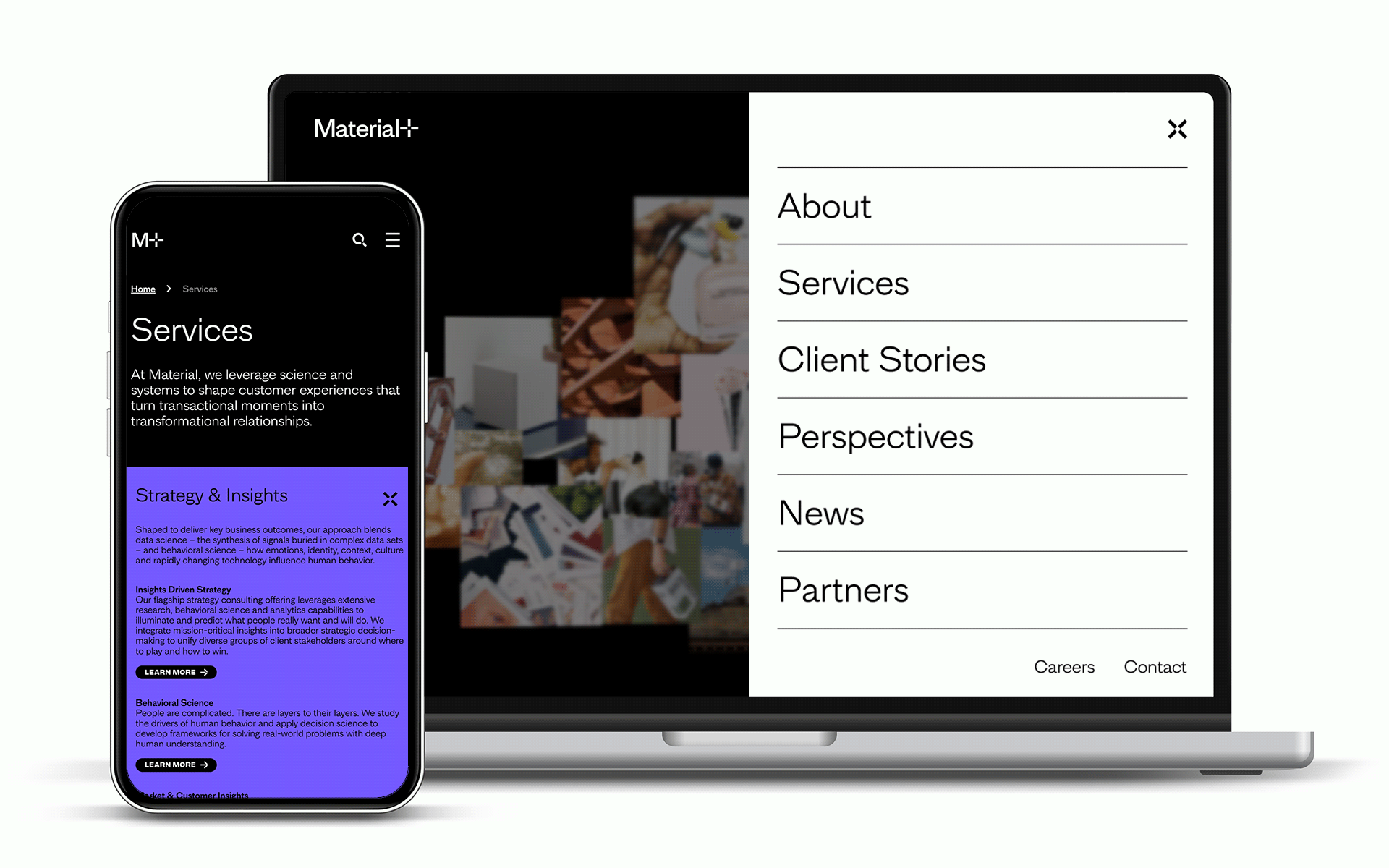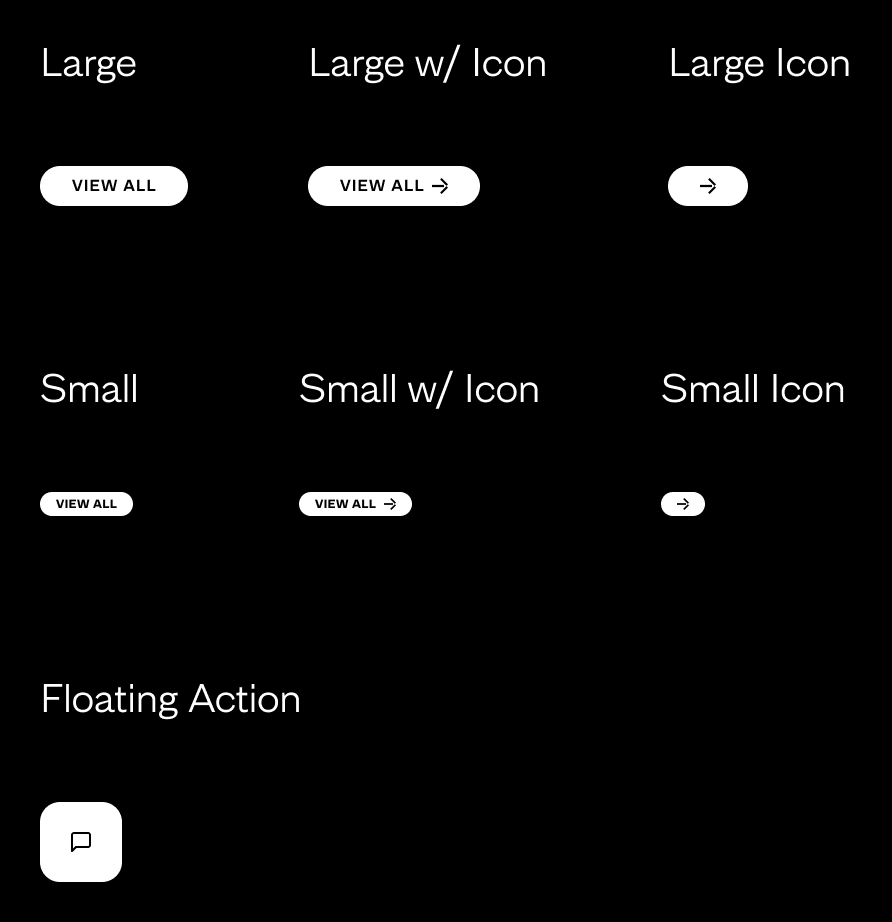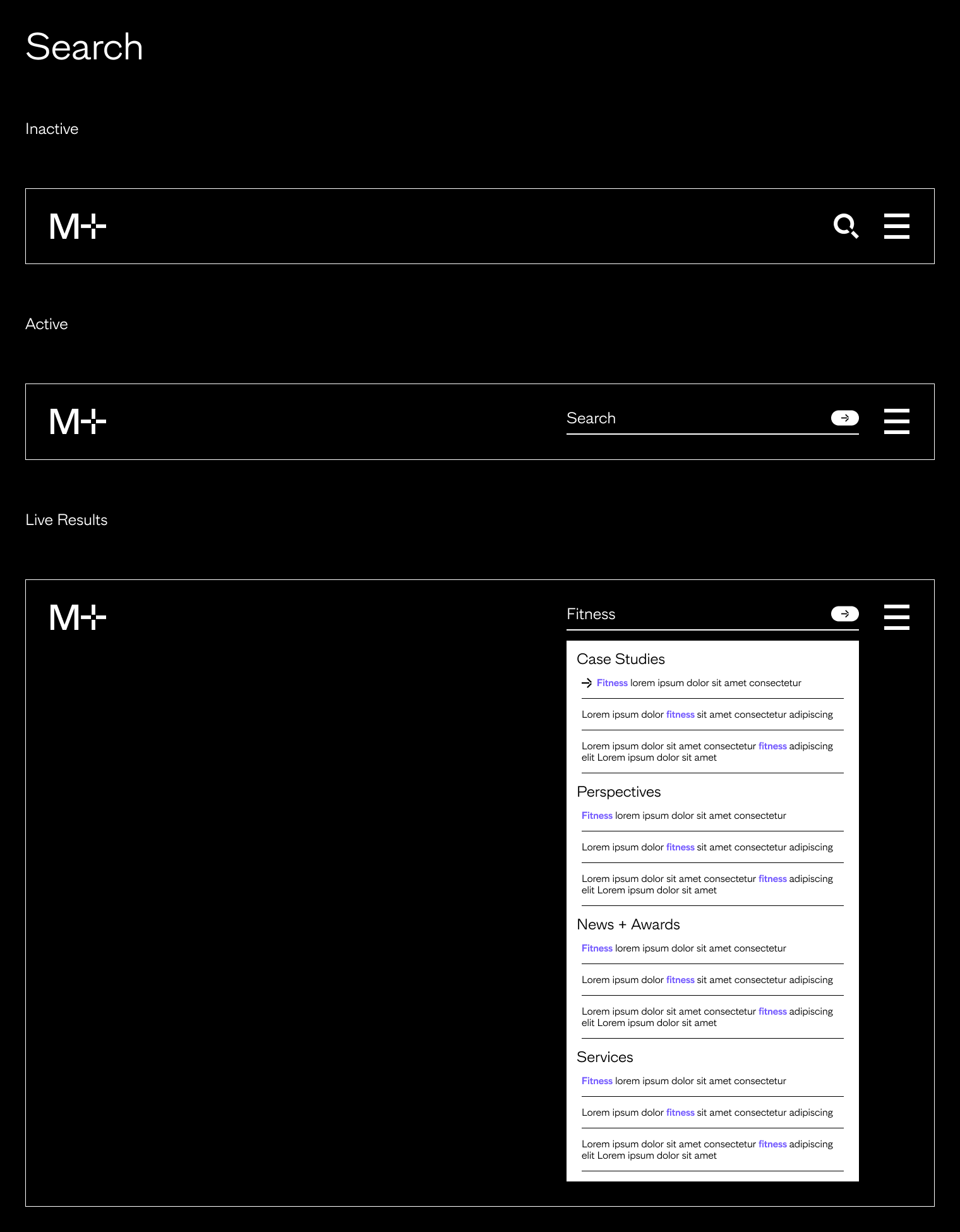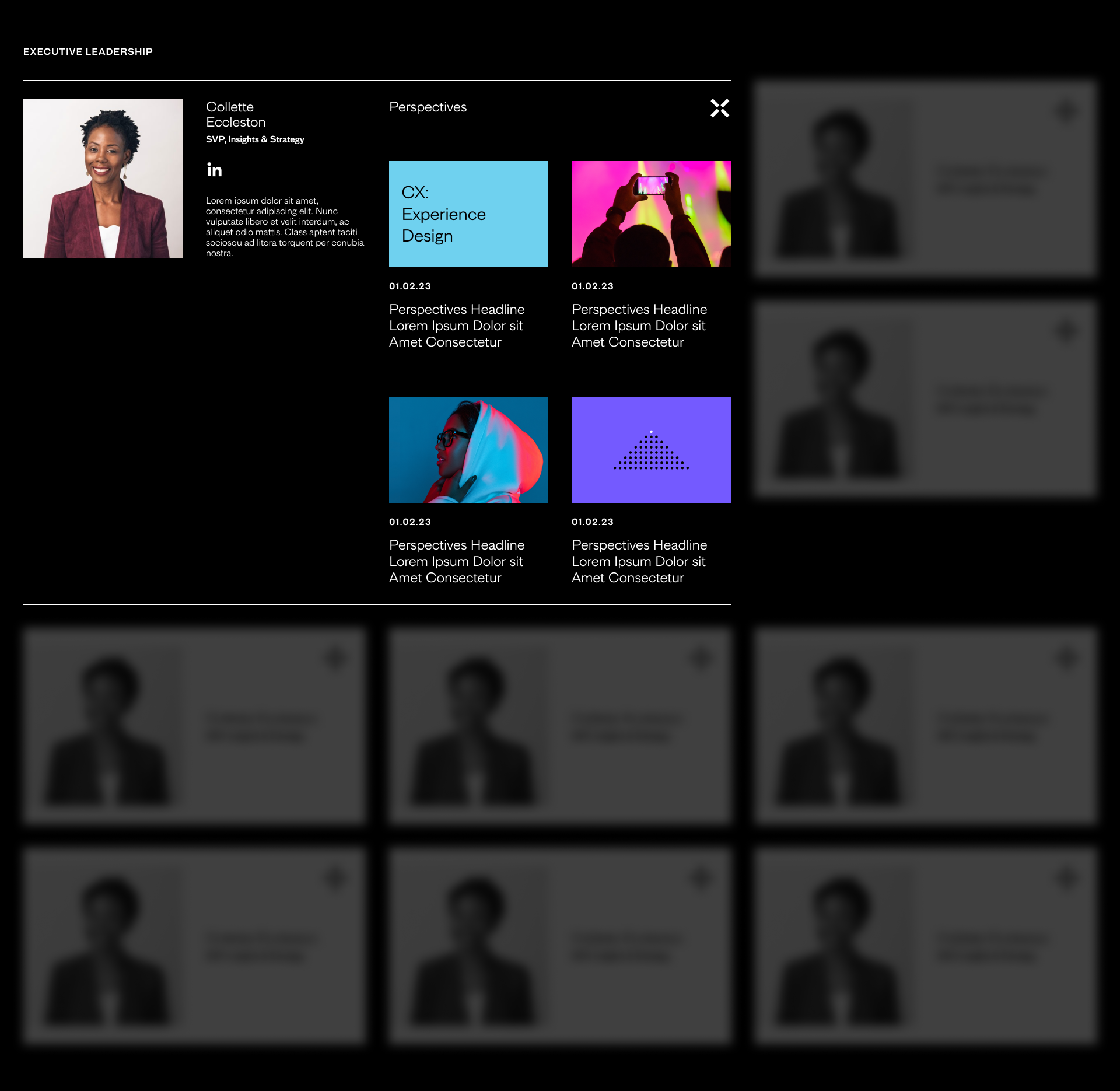a design language system built to flex
Material is a global customer experience transformation consultancy serving numerous Fortune 500 companies across diverse industries with services including data analytics, A.I. development, behavioral sciences, product and service design, and digital transformation.
Layers is a design library system supporting the organization's customer-facing digital touchpoints and proprietary platforms for client engagements. Evolved from the brand’s visual identity system as a foundation, the system articulates the brand's direct, graphic tone contextually.
Note: abbreviated library shown.
Thought leadership designed for clarity.
Extending the visual brand system, an editorial style was designed for content using simplified geometry and semiotic abstractions. The style offers a counterpoint to technological complexity and anxiety.
structure & governance
Using the DLS
Material+ Layers uses an atomic model to build all elements of the M+ platforms across customer-facing and proprietary platforms. Elements considered the building blocks are defined in Layer One (atoms), with more complex components utilizing these in Layer Two (molecules) and Layer Three (organisms).
New components should be derived from unmet use cases. The impact to the design system, token creation, and implementation should all be considered when designing for these new use cases.
All new system releases should be pushed with an accompanying changelog, highlighting new additions and structural changes for internal audiences of the organization.
foundations
colors
breakpoints, grids & spacing
typography
overlays & effects
components
buttons
forms
selections
tips, modals & alerts
tabs
audio
live search
filter & sort
cards: people
cards: stat, illustration, image content
service
visualization
The organization's service offering is comprised of core tiers with numerous single-point solutions within each, rooted in qualitative and quantitative insights. Articulating this model for internal audiences activates integrated organizational understanding and creates a vision for growth for external audiences, agnostic of the point of initial engagement.



























